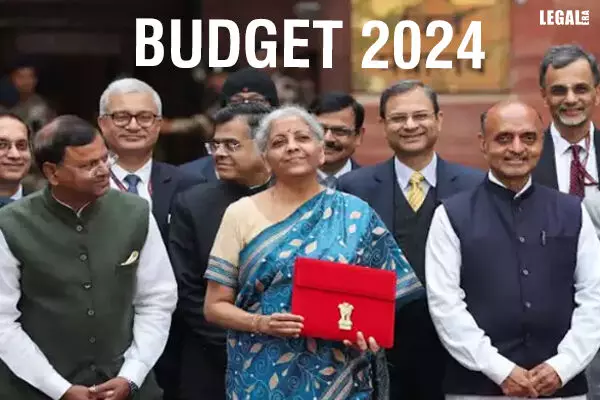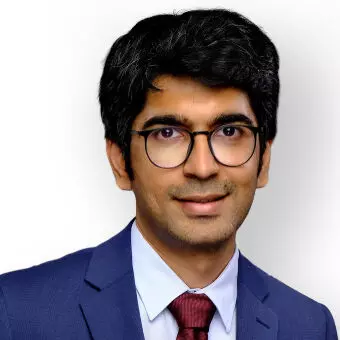- Home
- News
- Articles+
- Aerospace
- Artificial Intelligence
- Agriculture
- Alternate Dispute Resolution
- Arbitration & Mediation
- Banking and Finance
- Bankruptcy
- Book Review
- Bribery & Corruption
- Commercial Litigation
- Competition Law
- Conference Reports
- Consumer Products
- Contract
- Corporate Governance
- Corporate Law
- Covid-19
- Cryptocurrency
- Cybersecurity
- Data Protection
- Defence
- Digital Economy
- E-commerce
- Employment Law
- Energy and Natural Resources
- Entertainment and Sports Law
- Environmental Law
- Environmental, Social, and Governance
- Foreign Direct Investment
- Food and Beverage
- Gaming
- Health Care
- IBC Diaries
- In Focus
- Inclusion & Diversity
- Insurance Law
- Intellectual Property
- International Law
- IP & Tech Era
- Know the Law
- Labour Laws
- Law & Policy and Regulation
- Litigation
- Litigation Funding
- Manufacturing
- Mergers & Acquisitions
- NFTs
- Privacy
- Private Equity
- Project Finance
- Real Estate
- Risk and Compliance
- Student Corner
- Take On Board
- Tax
- Technology Media and Telecom
- Tributes
- Viewpoint
- Zoom In
- Law Firms
- In-House
- Rankings
- E-Magazine
- Legal Era TV
- Events
- Middle East
- Africa
- News
- Articles
- Aerospace
- Artificial Intelligence
- Agriculture
- Alternate Dispute Resolution
- Arbitration & Mediation
- Banking and Finance
- Bankruptcy
- Book Review
- Bribery & Corruption
- Commercial Litigation
- Competition Law
- Conference Reports
- Consumer Products
- Contract
- Corporate Governance
- Corporate Law
- Covid-19
- Cryptocurrency
- Cybersecurity
- Data Protection
- Defence
- Digital Economy
- E-commerce
- Employment Law
- Energy and Natural Resources
- Entertainment and Sports Law
- Environmental Law
- Environmental, Social, and Governance
- Foreign Direct Investment
- Food and Beverage
- Gaming
- Health Care
- IBC Diaries
- In Focus
- Inclusion & Diversity
- Insurance Law
- Intellectual Property
- International Law
- IP & Tech Era
- Know the Law
- Labour Laws
- Law & Policy and Regulation
- Litigation
- Litigation Funding
- Manufacturing
- Mergers & Acquisitions
- NFTs
- Privacy
- Private Equity
- Project Finance
- Real Estate
- Risk and Compliance
- Student Corner
- Take On Board
- Tax
- Technology Media and Telecom
- Tributes
- Viewpoint
- Zoom In
- Law Firms
- In-House
- Rankings
- E-Magazine
- Legal Era TV
- Events
- Middle East
- Africa
‘Legal Era’ Take on Budget 2024-25 Setting Sights on Becoming ‘Viksit Bharat’ by 2047

‘Legal Era’ Take on Budget 2024-25 Setting Sights on Becoming ‘Viksit Bharat’ by 2047
The Interim Budget 2024-25 was received with applause and delight as our Hon’ble Finance Minister Nirmala Sitharaman eloquently delivered the Budget Speech 2024-25.
The Government of India is indeed working with an approach to development that is all-round, all-pervasive, and all-inclusive. It is working to make India a ‘Viksit Bharat’ by 2047 by achieving not just a 7% GDP growth rate but also equally focusing on a more comprehensive ‘GDP’, i.e., “Governance, Development, and Performance.”
To achieve this goal of becoming a 7 trillion dollars economy by 2030, and a Developed India @2047, the government aims to improve people’s capability and empower them.
Legal Era wholeheartedly joins the government in strengthening this vision. The legal community has always been a nation builder, and we at Legal Era are committed to creating, year after year, opportunities for our 85,000-plus community of experts and stalwarts from across industry working tirelessly to solve legal problems, bolster economic growth, and position India as the most favoured nation for investments, innovation, and equitable growth.
That becomes even more critical in the current post-pandemic times where, geopolitically, global affairs are becoming more complex and challenging with wars and conflicts. Reshoring and friend-shoring, disruption and fragmentation of supply chains, and competition for critical minerals and technologies are redefining globalisation. In this new emergent world order, we at Legal Era reinforce our mission to build consensus on solutions for global problems, contribute to law and policy development, and always find the way forward.
We are confident that the Finance Minister’s faith in the trinity of demography, democracy, and diversity backed by ‘Sabka Prayas’ indeed has the potential to fulfil the aspirations of every Indian. Today, we are the 5th largest nation in economic size. Our fiscal deficit is 5.8% of GDP. We are primed for progress in the coming years.

Cyril Shroff
Managing Partner, Cyril Amarchand Mangaldas
Here are few cross-industry perspectives by leading members of the Legal Era Community, shared exclusively with Legal Era.
Speaking on the Budget, Mr. Cyril Shroff , Managing Partner, Cyril Amarchand Mangaldas said.
“The recently released World Economic Outlook report of the IMF, calls India a bright spot and has increased our growth estimates. The Budget speech reaffirms and consolidates this growth trajectory. In keeping with constitutional and legal convention, the Budget did not make significant changes to tax or the policy regime. However, it had an important signalling impact. The references to next generation of reforms, continued focus on trade and investment and attention to sunrise sectors such as technology and the energy transition set the path for higher as well as better quality growth for the coming year. The decision to continue tax incentives for investments by sovereign wealth funds and pension funds and those available to startups provides certainty and predictability. The procedural changes to the tax regime also facilitate streamlining and will have a multiplier impact. The withdrawal of older disputed tax demands similarly affords clarity to tax payer and will give a more real picture of public accounts. Within the constraints of the present budget, the finance minister has hit all the notes of growth, policy and tax certainty and being poised for continued reform.”
“In the Interim budget, there is no change in the existing rates of customs duties. The Government, in line with its ‘make in India’ initiative and with a special focus on MSME’s has proposed to extend the customs duties exemptions which were expiring in March, 2024 till 2025.”

Rajesh Narain Gupta
Managing Partner, SNG & Partners, Advocates & Solicitors
Speaking on the Budget, Mr. Rajesh Narain Gupta, Managing Partner of SNG & Partners, Advocates & Solicitors, said
Huge incentives to the private sector for innovations by creating a new fund exceeding one lakh crore and further a deep focus on infrastructure development by increasing the overall provisions as well as steps being taken towards rural, women and farmers development are astounding steps which will accelerate India becoming a developed nation

S. Vasudevan
Executive Partner, Lakshmikumaran and Sridharan
Speaking on the Budget, S. Vasudevan , Executive Partner, Lakshmikumaran and Sridharan said
As highlighted by the Hon’ble Finance Minister in her speech, there are no major policy changes from direct tax perspective. In few cases, the cut-off date has been extended from 31st March, 2024 to 31st March, 2025 for availing certain exemptions/ tax concessions. This includes the last date for incorporation of companies/ LLPs to qualify as eligible startup for tax exemption under section 80-IAC, window in which specified investments made by certain offshore sovereign wealth funds/ pension funds qualified for tax benefits and cut-off date for setting up of offshore banking units or other units in IFSC to qualify for tax exemptions on certain specified income. Interestingly, there is no extension of time limit for commencement of manufacturing operations by new companies intending to claim concessional tax rate of 15% under section 115BAB.
Further, there is no statutory amendment proposed in the Income Tax Act to implement to withdrawal of small-disputed tax demands announced by the Finance Minister during her speech. We need to wait for further announcements in the form of instructions or circular to understand the exact scope and coverage of such scheme.

Ashwin Sapra
Partner, Cyril Amarchand Mangaldas
Speaking on the Budget, Mr. Ashwin Sapra, Partner, Cyril Amarchand Mangaldas said
“The governments focus to extend health cover under the Ayushman Bharat scheme to all ASHA, Angawadi workers and helpers is a welcome step. These are people who are delivering Healthcare at the grass roots level and deserve to benefit from the scheme for the Healthcare services that they render where it is needed the most. Marginal increase in allocation for Ayushman Bharat. Should have been more as Healthcare services need a definite boost. Increase in the allocation under the PLI scheme will surely boost domestic production provided quality issues are addressed.”

Bose Varghese
Senior Director- ESG Practice, Cyril Amarchand Mangaldas
Speaking on the Budget, Mr. Bose Varghese , Senior Director- ESG Practice Cyril Amarchand Mangaldas said
“Household rooftop solar program will help drive both renewable energy and electric mobility transitions. 1 crore households can potentially avoid nearly 25 million tons of CO2 every year.”
“The most significant announcement in the green energy space is the viability gap funding for 1 GW of offshore wind power capacity. This is a much needed push to exploit the extensive offshore wind potential India has.”

Arushi Jain
Partner & (Head of Media, Education & Gaming), Cyril Amarchand Mangaldas
Speaking on the Budget, Ms. Arushi Jain, Partner & (Head of Media, Education & Gaming), Cyril Amarchand Mangaldas said
“The interim budget continues to keep focus on education, which is imperative to realising the dreams of 'vikshit Bharat '. Announcements were made of the government's plan to set up more medical colleges. The speech also had a clear focus on encouraging research, innovation and technological advancements to propel India's growth. These will be possible with a strong foundation in education - which is supported by the government via NEP and many other light touch regulatory reforms.”
Legal Era joins in spirit and action as our Hon’ble Prime Minister’s clarion call in his recent Independence Day address to the nation: We “commit ourselves to national development, with new inspirations, new consciousness, new resolutions, as the country opens up immense possibilities and opportunities.” It is our ‘Kartavya Kaal.’
Infrastructure

Jatin Aneja
National Practice Head Infrastructure, Energy and Project Finance, Shardul Amarchand Mangaldas & Co.
Jatin Aneja, National Practice Head Infrastructure, Energy and Project Finance, Shardul Amarchand Mangaldas & Co.
"Heartening to see the focus and impetus by the central government towards infrastructure development and the commitment to transform the country to a 'Viksit Bharat' on the backbone of infrastructure development. This would provide the much needed guidance to municipal and state level planners to take the country and infrastructure development forward."

Nawneet Vibhaw
Partner, Environmental Law, Shardul Amarchand Mangaldas & Co.
Rooftop Solar
Nawneet Vibhaw, Partner, Environmental Law, Shardul Amarchand Mangaldas & Co.
Rooftop Solar: The focus on rooftop solarization to ensure free electricity of up to 300 units for 1 crore households is a very innovative and significant step. It will serve as an example and pave the path for crores of Indian households to emulate this in future thus strengthening our resolve and enhancing our pace to achieve our net-zero targets by 2070. The overall focus on resource efficiency and sustainable development as our strategy for ‘Amrit Kaal’ is a welcome step which will be aptly supported through initiatives like biodegradable plastics, development of electric vehicle infrastructure and developing climate resilience through a robust blue economy.
Environment: Resource efficiency and sustainable development are key to our economic development and strategy for ‘Amrit Kaal’. The focus of the interim budget on rooftop solarization, biodegradable plastics, development of electric vehicle infrastructure and developing climate resilience through a robust blue economy are all steps in the right direction to achieve ‘net-zero’ by 2070.
Real Estate

Bhoumick Vaidya
Partner, Shardul Amarchand Mangaldas & Co
Bhoumick Vaidya, Partner, Shardul Amarchand Mangaldas & Co.
As anticipated, the initiatives announced under Budget 2024 will strengthen the real estate sector and aid in the industry achieving sustainable growth. The strategic increased allocation for Pradhan Mantri Awas Yojana (PMAY) will only promote and encourage inclusive and equitable growth in the industry. A careful thought has been considered for the ever-growing economically weaker section of the society and the commitments will only support the growing demand for housing in rural areas. The allocation of a considerable amount of Rs 11.11 lakh crores for upgrading the infrastructure of the nation will play a pivotal role in the overall upliftment and revitalization of the entire real estate landscape of the nation.

Ashoo Gupta
Partner, Shardul Amarchand Mangaldas & Co.
Ashoo Gupta, Partner, Shardul Amarchand Mangaldas & Co.
Pradhan Mantri Awas Yojana (Grameen) has made remarkable strides, nearing the 3 crore house target. This achievement signifies significant progress in enhancing rural housing and improving living conditions for millions. The commitment to an additional 2 crore houses over the next 5 years highlights a sustained dedication to rural housing development.
The Housing for Middle Class scheme is a commendable initiative that empowers the middle class to fulfill their dream of home ownership. This step is anticipated to boost economic growth, providing a sense of stability and prosperity within the middle-income segment.
Together, these efforts contribute positively to both rural and middle-class communities, assuring a more inclusive and prosperous society.
Technology

Hemant Krishna
Partner, Shardul Amarchand Mangaldas & Co.
Hemant Krishna, Partner, Shardul Amarchand Mangaldas & Co.
By nature, deep-tech defence start-ups are R&D focused and need patient capital. The growth cycles of these companies are misaligned with the mainstream financing options currently on offer. Therefore, this announcement will certainly boost the sentiment in this sector. Capital outlay and the right kind of support for this sector now will lighten our massive defence import bills 7-8 years from now. Equally important though is a clear path for these start-ups to integrate with our defence supply chain. Indigenisation in defence is a long game, but one that is worth playing.
Tax

Gouri Puri
Partner, Shardul Amarchand Mangaldas & Co.
Gouri Puri, Partner, Shardul Amarchand Mangaldas & Co.
As expected, the Government has exercised policy restraint under the interim budget with no tax proposals being announced. The extension of the sunset dates for the tax holiday for starts ups, tax benefits to sovereign wealth funds and aircraft leasing business in IFSC’s is indeed welcome and offers tax certainty.
The Hon’ble Finance Minister’s has maintained fiscal discipline by not announcing any tax rate cuts to provide fiscal stimulus despite this being an election year. This will indeed secure fiscal consolidation and macroeconomic stability for the Indian economy.

Sanjiv Malhotra
Senior Advisor, Shardul Amarchand Mangaldas & Co.
Sanjiv Malhotra, Senior Advisor, Shardul Amarchand Mangaldas & Co.
On the direct tax front, extension of the sunset clause for IFSC and start-ups was expected and delivered by the finance minister. I don’t understand the rationale of not extending the sunset clause (March 31, 2024) for new manufacturing units under section 115BAB. This seems contrary to the policy of the Government to promote manufacturing in India under the PLI scheme. I do hope that this is an error of omission, and we will see a notification to extend this benefit soon.
Tax Disputes: Timelines for transfer pricing assessments, proceedings before dispute resolution panel and tax tribunals have been extended to March 31, 2025. This is a pragmatic step because it is better to give adequate time to the relevant authorities to examine the pending matters in-depth. The current workload on tax disputes is extremely high and lack of time, does impact the quality of orders being passed. Also, the proposal to withdraw low value tax matters (upto INR 25,000) for pertaining to FY 2010 and matters with tax demand upto INR 10,000 for FY 2011 to FY 2015, should help authorities create more bandwidth and focus on matters involving material tax amounts.
Personal Tax: There is no change in the tax rates, which is consistent to the stated policy of the Government of having a stable tax regime. The salaried class will expect more concessions in the full budget later this year.
Macroeconomics: Sometimes less is more and that what sums up this year’s interim budget. The overall feedback on the budget is positive. This is largely due to the fact that the general expectations were low as this was a vote-on-account and not a full budget. I do expect that the big bang announcements are being kept for July 2024, when the full budget will be announced. The big news for global investor community is the target FY 2024-25 fiscal deficit number of 5.1 percent of GDP and 4.5% for FY 2025-26. This beats the general expectation that FY 2024-25 would have been pegged around 5.3% of GDP. Robust tax collections and enhanced tax compliances are the key contributors to the optimism of the Government to commit to an aggressive fiscal deficit target. Just like in 2019, this year also the Government has stuck to maintaining fiscal discipline and not get carried away with populist spending, despite it being an election year.



